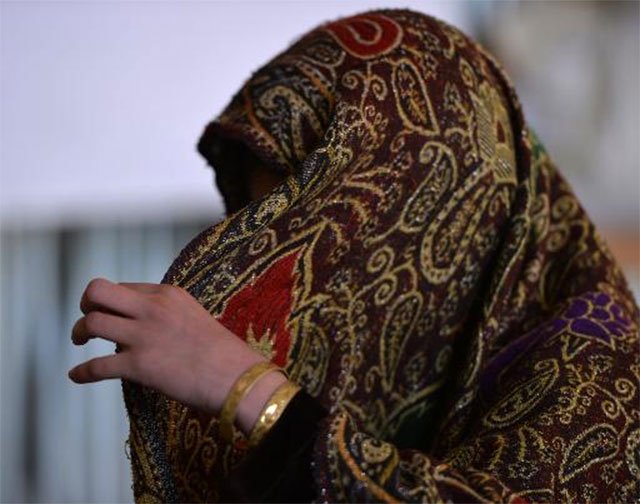
How protecting mothers, sisters and wives against domestic abuse is ‘anti-Islamic’ and anti-nationalist, is somewhat of a mystery. The cleric jumps two steps to declare the Sharif brothers as ‘secularising’ Pakistan. And it doesn’t end here — the cleric goes on to link the protection bill to somehow infusing immorality and wickedness in women. In other words, domestic abuse is what keeps the women morally correct as per the logic of the said cleric. Moreover, the cleric’s argument sounds more like a genuine concern for the ‘rights’ of men that are in danger due to this bill. The Islamic Republic of Pakistan is, thankfully, a democracy and people have, to a large extent, the right to the freedom of speech, which is why the cleric’s argument has been tolerated, yet followed by none. Given, however, that his stance has little to do with religion and more to do with his personal prejudice that he has conveniently confused with religion, opens up several questions.
JUI-F livid at passage of women rights bill
For one, his stance puts into spotlight the status of the clergy in Islam and if they have the right to threaten the parliamentary decision. A glimpse into Islamic history reveals that Islam removed the middlemen between man and Allah by revealing the Holy Quran. In fact, the idea of an organised clergy comes from the West. Let that sink in. Second, who represents Islam in Pakistan? Given that an individual cleric can say and represent Islam in whatever way he deems suitable puts the religion at risk of a particular individual and his self-interests. Again, since clerics like to cite evidence from the 7th century, looking into history, there is no precedence of individual representation of Islam. In fact, Islam is to be represented only by the head of the state — after all, most clerics keep pointing out that there is no separation of state and religion in Islam. Whether clerics today like it or not, the prime minister of Pakistan and parliament represent Islam and are supposed to take religious decisions.
It appears, though, that the clergy has conveniently used parliament when it serves their interest, and at all other times criticised it by accusing it of propagating ‘secularism’. What we should be asking is, if we are going to tolerate a parallel power to thrive in Pakistan that will reject the parliamentary decision of the government — could this classify as anti-state propagation?
Punjab Assembly unanimously passes protection of women bill
It isn’t too complicated and the government, including the people, must see beyond titles. For years, those hindering Pakistan’s progress in the name of protecting Islam, including challenging this bill to protect women, may actually be harming Islam. They speak the loudest against Westernisation, yet may be the products of the West. They are quick to label others as traitors, yet it is they who may have something to confess.
Published in The Express Tribune, February 27th, 2016.
Like Opinion & Editorial on Facebook, follow @ETOpEd on Twitter to receive all updates on all our daily pieces.













COMMENTS (13)
Comments are moderated and generally will be posted if they are on-topic and not abusive.
For more information, please see our Comments FAQ